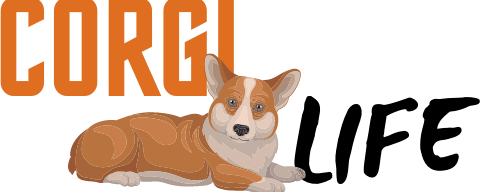Have you ever known a corgi as a pup that you are pretty sure changed color as it got older? Maybe you chalked it up to a faulty memory. But later on, you start to ask yourself, do corgi puppies change color?
Do corgi puppies change color as they get older?
Corgi puppies do change color. Corgi pups come in different colors, but as they grow older, their fur color changes.
For one, at birth, a corgi pup’s coat is typically darker than an adult’s coat. They become lighter as they grow. Color changes in corgi puppies usually follow a pattern. But sometimes, you can’t tell what color a corgi will be as an adult.
Corgi pups may also come with specific markings at birth. But these markings may blend or disappear as they grow older.
In the rest of this article, we go into the details of color changes in corgi puppies. So, if you are curious about what color your pup might change to, read on!
Corgi Coloring
Corgi puppies come in various colors at birth. Depending on their color at birth, they may grow into one of many colors.
Of the many colors corgis may grow into, there are 4 AKC standard colors for Pembroke Corgis: red, sable, fawn, and black and tan.
Cardigan Welsh Corgis have 5 AKC standard colors: black and white, blue merle and white, brindle and white, red and white, and sable and white.
Besides the standard colors, corgi pups may also grow to become mismarks, merles, red bluie, sable bluie, or tri bluie. Corgis may also be tri-colored.
While the color of corgi pups at birth can give insight into their color in adulthood, sometimes it is difficult to tell how their color will change. However, an experienced breeder should be able to predict the color changes with high accuracy.
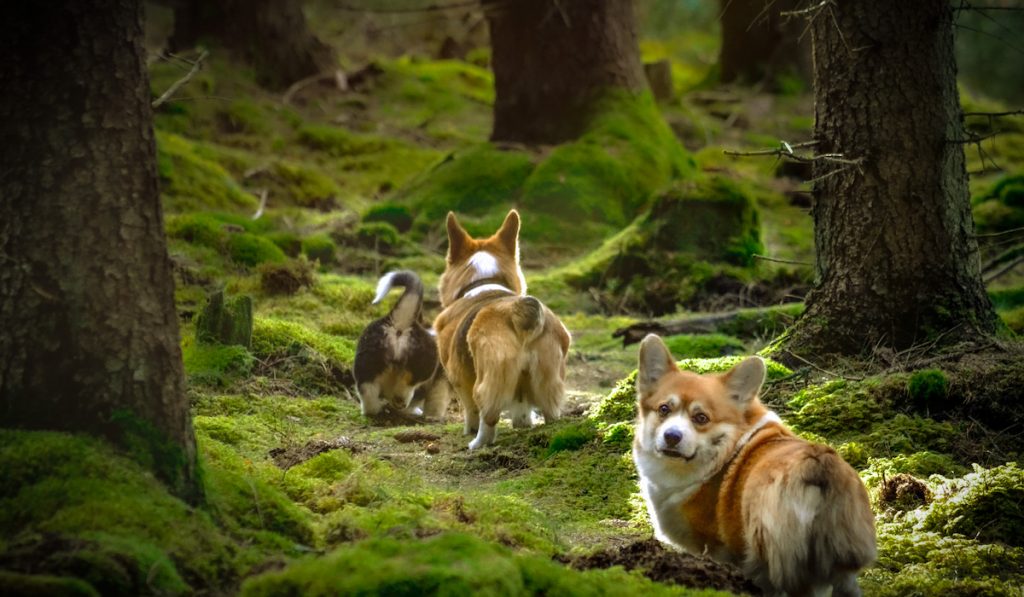
6 Possible Coat Color Changes
The following are some possible coat color changes corgi puppies undergo as they grow older:
- A black-headed tri may take on more fawn color as it grows older, becoming a red-headed tri in the process.
- A black-headed tri may also retain the black on its face or back while adding more fawn as it grows.
- A red-headed tri may lose most of the black parts of its facial hair as it grows. As it does, its fur will become predominantly red.
- A red corgi pup born with a lot of black hair may lose most of its black fur as it grows older, becoming predominantly red.
- Also, a red corgi pup born with a lot of black hair may lose most of its black fur as it grows older, becoming predominantly sable.
- Sable corgi pups (both dark sable and light sable) can grow up to become red and white.
The possible color changes listed above are not the only possibilities. As we mentioned before, color progression in corgis typically depends on their color at birth. However, it may be difficult to predict sometimes.
9 Different Colors of Corgis
Standard Colors
Sable
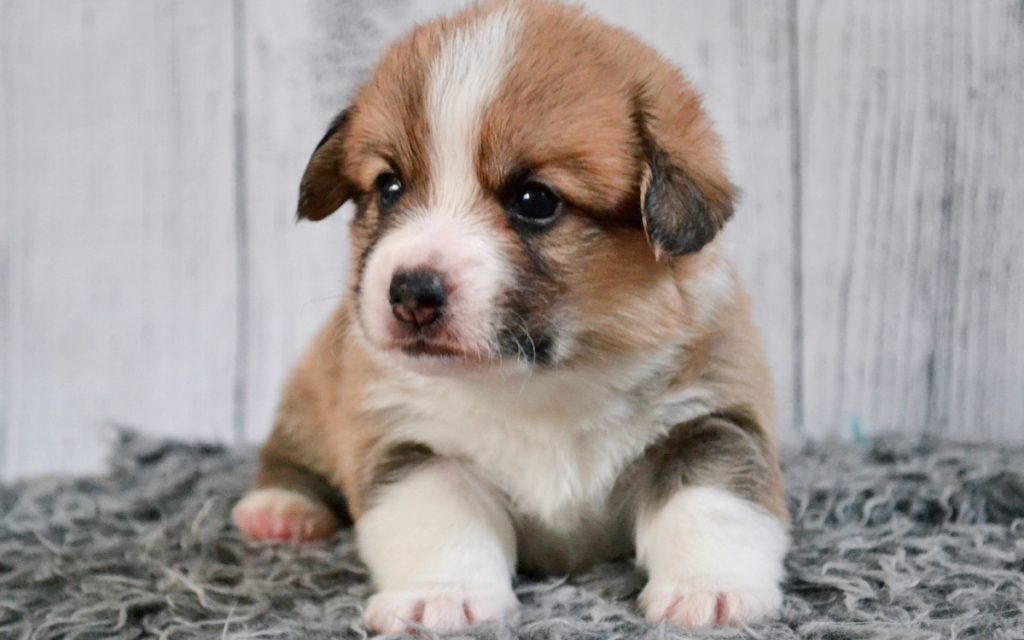
Sable is perhaps the rarest corgi color. Sable corgis have lighter hair at the base and darker hair at the tips. They also come with black markings in various areas, including their back, tail, and widow’s peak.
The darker sable colors of corgis typically blend in with red fur to form a chestnut color. So, it is not surprising that people sometimes confuse sable corgis for red corgis.
Red
As you may have guessed, red corgis come with predominantly red fur. They are typically born with significant black hair, but most of this disappears in adulthood.
Red corgis come in various shades, some very dark and some very light.
Fawn
Fawn corgis are basically very light red corgis.
Tri-Colored
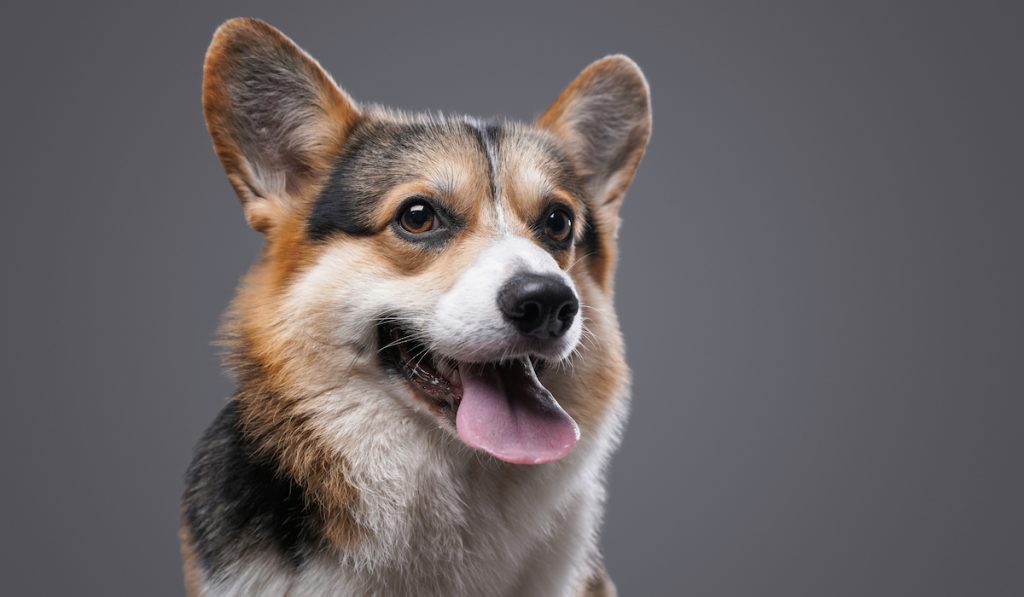
Tri-colored corgis are pretty rare, but they do exist. As the name says, tri-colored corgis come with three colors on their fur; they typically have predominantly black hair with white and tan mixed in.
A tri-colored corgi may be black-headed tri or red-headed tri.
Black-headed tris come with black hair atop their head and around their eyes and ears. This combination of black hair around their face gives them a raccoon-mask appearance.
Red-headed tris come with red hair around their ears and eyes and atop their head. They may also be called saddleback corgis.
Black and White
Cardigan Welsh Corgis are the only corgi variety that comes in black & white. Still, if you pay close attention to their fur, you may find some markings of other colors. In summary, it is pretty hard to find a purely black and white corgi.
Red and White
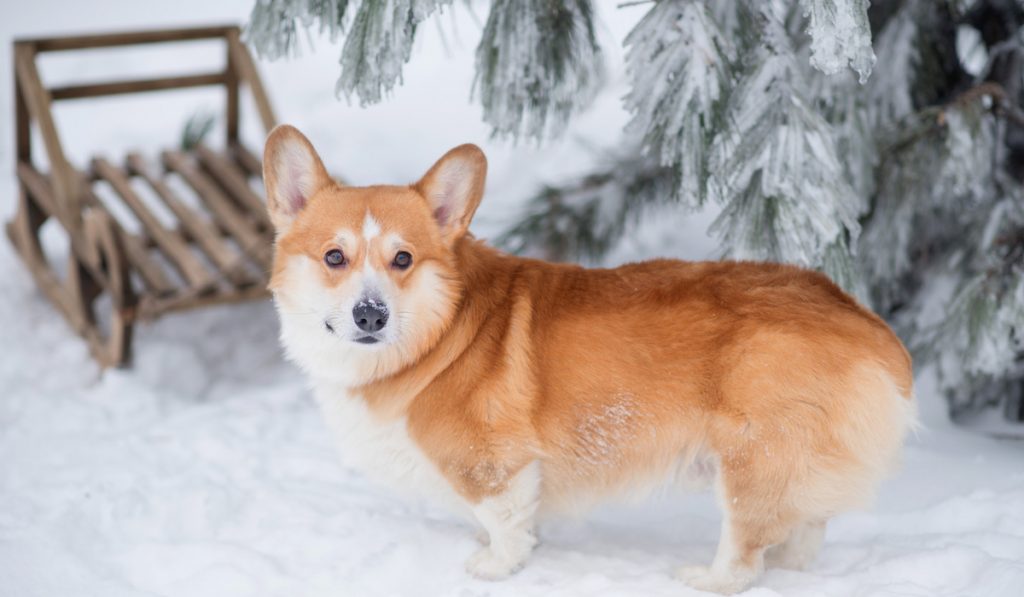
Red and white is the most common corgi color type, and it is typically seen in Pembroke Corgis. Perhaps, the fact that it is Queen Elizabeth’s favorite may be the reason for its popularity amongst corgi colors.
As with red corgis, the red part of a red and white corgi can come in various shades.
Fault Colors
Whitelies
Whitelies are corgis with mostly white bodies alongside black, red, or sable markings.
Mismarks
A mismark is a fault in the color of corgis. Mismarked corgis have a base color covered with white on any area of their back between the withers and the tail. This can produce spotted or patchy coat patterns. Mismarks may also come with black hair and white markings with no tan.
Mismark corgis can be registered with the AKC but cannot be part of AKC shows.
Bluies
Bluies have a bluish or greyish tinge to their coat. They typically come with blue eyes. But they may also have grey or liver eye rims, lips, and nose.
Bluies are available as red bluie, sable bluie, and tri bluie. The tri bluies are the easiest tri-colors to come by.
Like mismarks, bluies can be registered with the AKC, but they cannot be a part of the shows.
Note that the color types in corgis are not limited to those we discussed above.
Final Take
Corgi puppies’ coat colors often change as they grow older.
While their color change typically depends on their birth color, there are many possibilities.
Still, an experienced breeder should be able to give you the best opinion on what color your corgi pup will be as an adult.
Resources
- https://harmancorgis.com/coat-colors-and-color-changes-in-corgis/
- https://simpleguidetoliving.com/the-charm-behind-the-corgis-color-progression/
- https://www.pattiscaliforniacorgis.com/puppy-color-can-change.html
- https://www.pupvine.com/corgi-colors/
- https://www.akc.org/dog-breeds/pembroke-welsh-corgi/
- https://www.akc.org/dog-breeds/cardigan-welsh-corgi/
- https://www.cowboyscountrycorgis.com/different-colors-of-the-corgi
- https://pembrokecorgi.org/judges-education/photo-gallery/serious-faults/
- http://cookarenacorgis.com/lesson/pembroke-welsh-corgi-colors/
